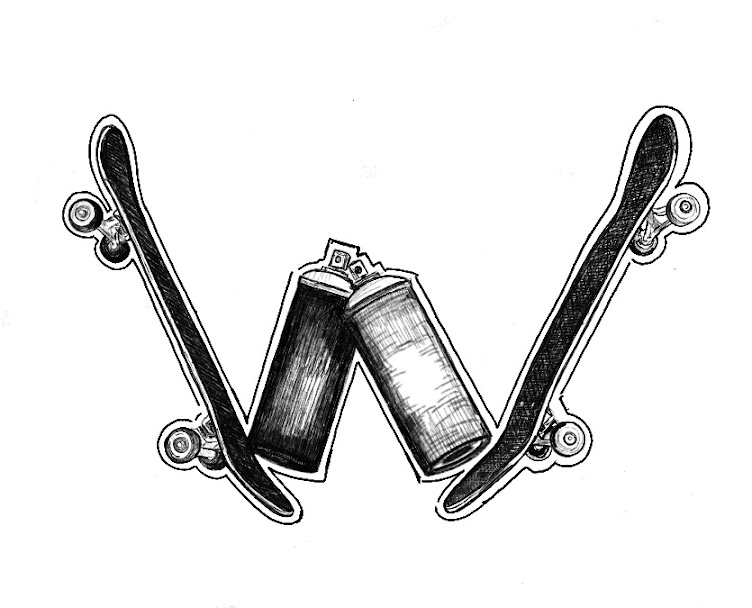A pro skater from Brooklyn is rumored to have said that the only
good thing about Long Island is that it's attached to Brooklyn. What
this curmudgeon didn't mention is that the island also connects with
Queens (so we LI'ers have that going for us, too, which is nice). In
celebration of this connection, Wriders brings you Poet for Poets: a
collaboration with legendary Queens writer, Poet CWK, and everyone's
favorite skater's favorite skater, Long Island's Gino Iannucci (Poets).
When did you start skating?
Gino:
The first thing that comes to mind is a young girl in my grade school
that used to skateboard to school. This was probably around 1986. That's
the first time I saw a legit skateboard. I was used to the Toys R' Us
plastic boards, and she was riding a Town & Country wooden
skateboard. I remember being intrigued.
When did you start writing?
Poet:
Grade school, around '84 or '85, I was in class with a girl who wrote
Boney D. I was intrigued. She knew a lot of people from the
neighborhood, and that's how it all started.
 |
| Available at Poets Brand |
Where did Poets come from?
Gino: Poets Corner is a neighborhood in Westbury, Long Island, where I grew up. So I named the brand after the neighborhood.
Where did Poet come from?
Poet: There was a Poet from my neighborhood who stopped writing years earlier, so I went with the name.
 |
| Available at Poets Brand |
In
skating, filming at skateparks is frowned upon; in writing, painting
legal walls is frowned upon. What are your thoughts on these "rules"?
Gino:
I've filmed at skateparks as I've gotten older, and I think that's
because I've gotten less and less interested in being in the streets.
And less and less capable of the physical demand of skating through the
streets from spot to spot. So parks became easier. If I was younger, I
probably would have frowned upon park footage. I don't necessarily enjoy
watching footage at parks as much as street footage, of course. So I
don't frown upon it, that much, because I do it, but probably back in
the day I would have.
Poet: Legal walls is street
art. I have done them, and I will still do them. But not on a regular
basis. Graffiti is illegal, and that's how it was and how it will always
be.
Back in the day, skating and
graffiti weren't as accepted by the mainstream as they are now. How do
you think this warm welcome from the masses has affected the cultures?
Gino:
Acceptance always seems to make things watered down and cheesy. That's
my generation's way/my 50-year-old self's way of looking at it. To put
it simply, there are pluses and minuses.
Poet:
It's a 50/50 split. You have your pros, and you definitely have your
cons. The cons are that they take something that was created by children
and exploit it for their own needs while making millions of dollars
with something that was created by kids; something that's frowned upon
and they tell you that you can't do, you shouldn't do, yet corporate
America has basically hijacked it. There are a few people that are
getting paid off of it, yes, a few. Few and far between. There are
countless others that ain't getting shit. And they're using their
graphics and styles in commercials and clothing brands, so basically
corporate America is robbing the poor.
Last question goes to Poet: will you hit my book?
Poet: Yes.








